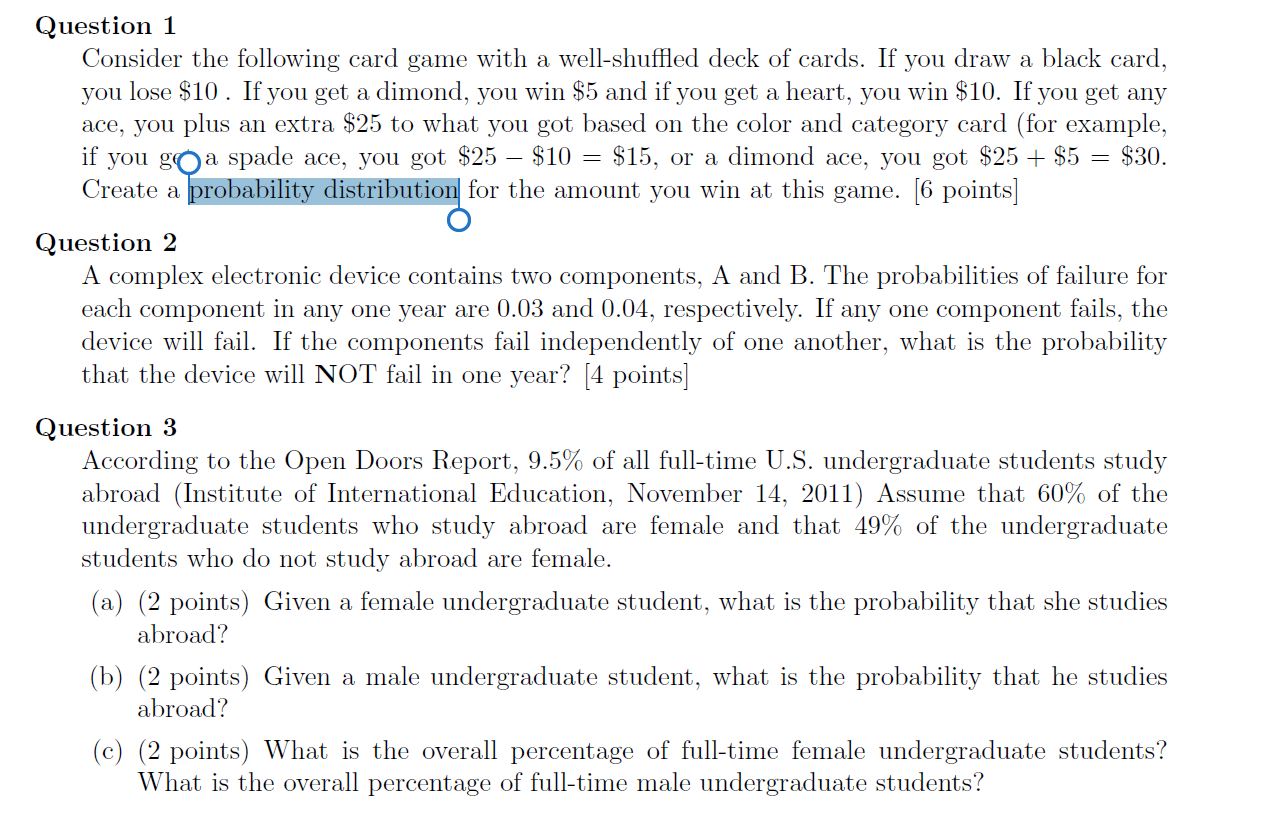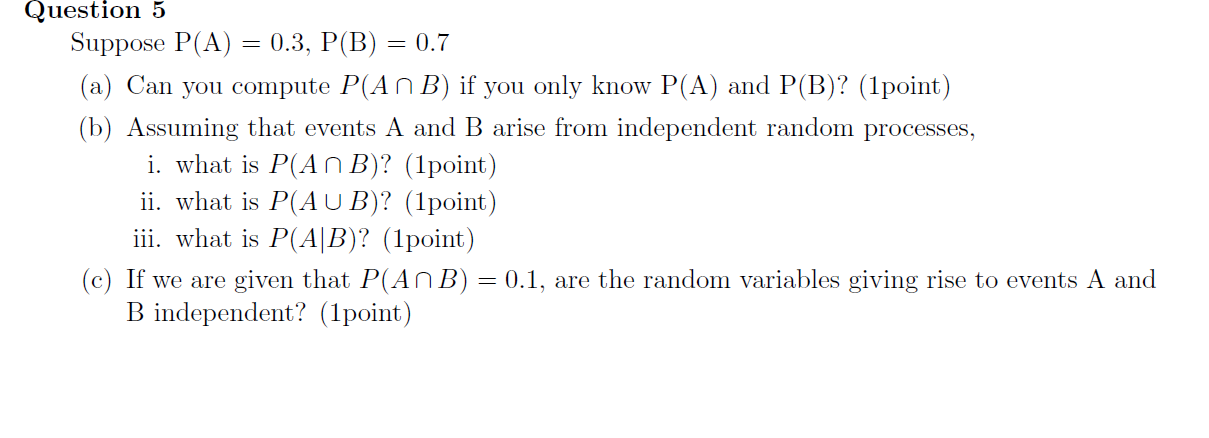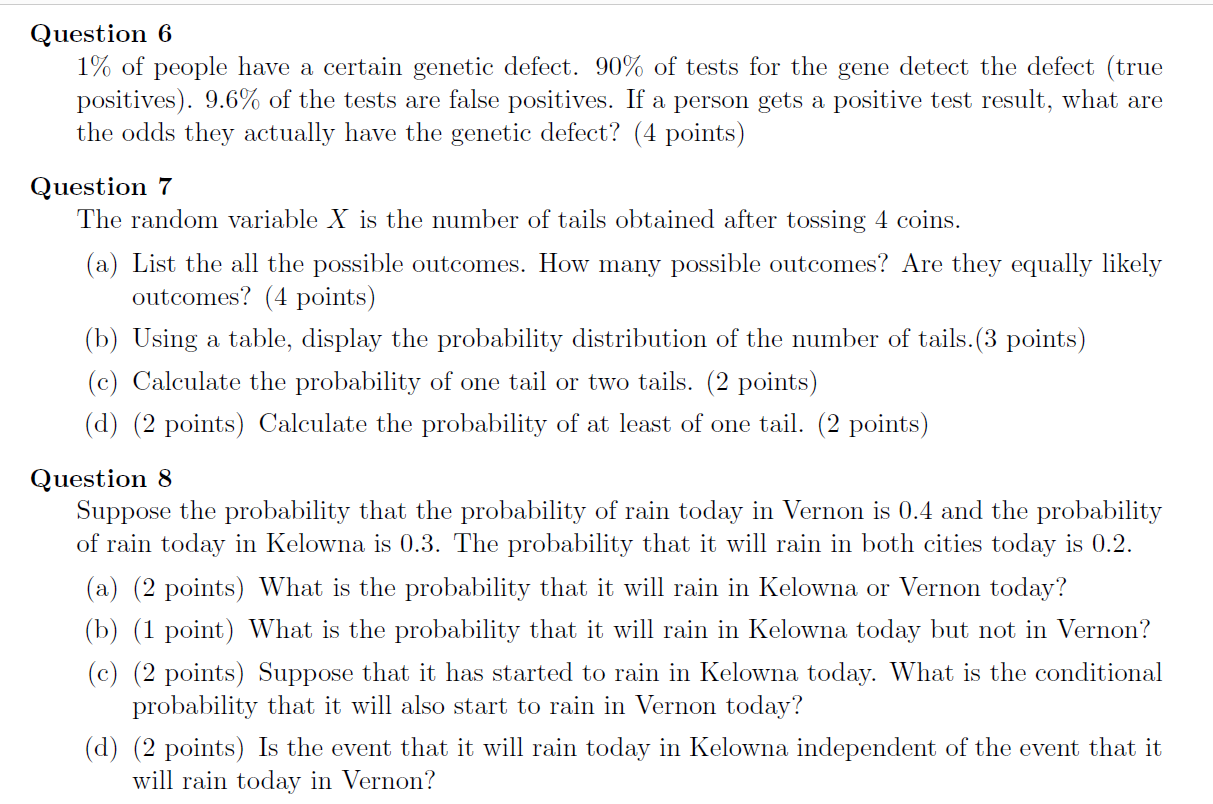How are questions 1-3, 5-8 computed?
Question 1 Consider the following card game with a well-shufed deck of cards. If you draw a black card, you lose $10 . If you get a dimond, you win $5 and if you get a heart, you win $10. If you get any ace, you plus an extra $25 to what you got based on the color and category card (for example, if you g a spade ace, you got $25 $10 : $15, or a dimond ace, you got $25 + $5 : $30. Create Hfor the amount you win at this game. [6 points] Question 2 A complex electronic device contains two components, A and B. The probabilities of failure for each component in any one year are 0.03 and 0.04, respectively. If any one component fails, the device will fail. If the components fail independently of one another, what is the probability that the device will NOT fail in one year? [4 points] Question 3 According to the Open Doors Report, 9.5% of all full-time U.S. undergraduate students study abroad (Institute of International Education, November 14, 2011) Assume that 60% of the undergraduate students who study abroad are female and that 49% of the undergraduate students who do not study abroad are female. (a) {2 points) Given a female undergraduate student, what is the probability that she studies abroad? (b) {2 points) Given a male undergraduate student, what is the probability that he studies abroad? (c) {2 points) What is the overall percentage of full-time female undergraduate students? What is the overall percentage of fulltime male undergraduate students? Question 5 Suppose P(A) = 0.3, P(B) = 0.7 (a) Can you compute P(A F] B) if you only know P(A) and P(B)? (lpoint) (1)) Assuming that events A and B arise from independent random processes, 1. What is P(A D B)? (1poi11t) ii. what is P(A U B)? (1point) iii. what is P(A'B)? (1point) (C) If we are given that P(A H B) = 0.1, are the random variables giving rise to events A and B independent? (1poi11t) Question 6 1% of people have a certain genetic defect. 90% of tests for the gene detect the defect (true positives). 9.6% of the tests are false positives. If a person gets a positive test result, What are the odds they actually have the genetic defect? (4 points) Question 7 The random variable X is the number of tails obtained after tossing 4 coins. (a) List the all the possible outcomes. How many possible outcomes? Are they equally likely outcomes? (4 points) (b) Using a table, display the probability distribution of the number of tails.(3 points) (c) Calculate the probability of one tail or two tails. (2 points) (d) (2 points) Calculate the probability of at least of one tail. (2 points) Question 8 Suppose the probability that the probability of rain today in Vernon is 0.4 and the probability of rain today in Kelowna is 0.3. The probability that it will rain in both cities today is 0.2. (a) (2 points) What is the probability that it will rain in Kelowna or Vernon today? (b) (1 point) What is the probability that it will rain in Kelowna today but not in Vernon? (c) (2 points) Suppose that it has started to rain in Kelowna today. What is the conditional probability that it will also start to rain in Vernon today? (d) (2 points) Is the event that it will rain today in Kelowna independent of the event that it will rain today in Vernon









